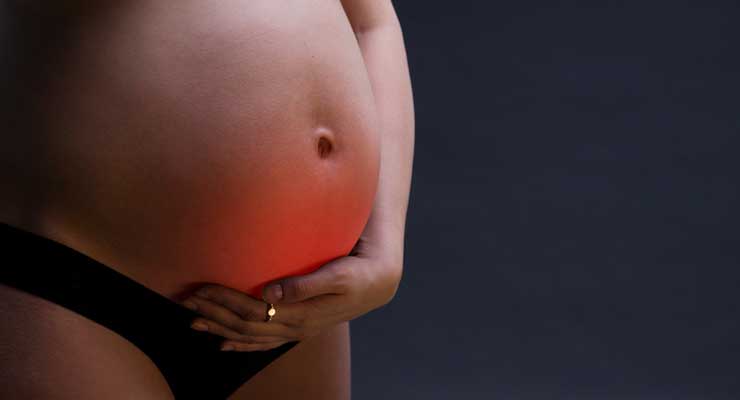Preterm labor is labor that occurs before the 37th week in a normal 40-week pregnancy. The March of Dimes reports that 12 percent of babies born in the United States each year are born prematurely. These babies usually require longer hospital stays and experience more extensive long-term health problems. Sadly, according to the American Congress of Obstetricians and Gynecologists (ACOG), premature babies account for most newborn deaths. Learn the signs of preterm labor in pregnancy so you can be prepared.
Signs of Preterm Labor in Pregnancy
Contractions
It is normal for women to experience Braxton Hicks contractions during the later stages of pregnancy. Though uncomfortable, these contractions generally go away within a short period of time and stop altogether when you lie down. The ACOG suggests notifying your health-care provider if you experience more than four contractions within 20 minutes or if you have eight contractions within an hour. She may want to monitor your contractions or perform an internal cervical exam to check for dilation. Furthermore, she may order medication and bed rest to stop labor from progressing.
Discharge
According to the American Pregnancy Association, normal discharge during pregnancy appears thin, white and milky. However, a change in the type and amount of vaginal discharge can indicate preterm labor. Report any mucous- or blood-tinged fluid to your health-care provider immediately. Likewise, a continuous trickle or gush of fluid might be a sign of ruptured membranes and means delivery is impending.
Cramping
Many women complain of abdominal cramps and backaches during pregnancy as the baby grows and begins to put pressure on surrounding nerves. Abdominal cramps with or without diarrhea, prolonged menstrual-like cramps or a lingering, dull backache might be cause for concern. Pay close attention to these aches and pains, and call your health-care provider if they do not go away with rest.
Pressure
The sudden feeling of pressure in the abdominal or pelvic region is often imminent of labor. This feeling results from the connective tissues of the pelvic area relaxing so that the baby actually sits lower against the pelvic bone. Though labor might be weeks away, schedule an appointment to see your health-care provider so that she can determine the baby’s position and condition of your cervix. Only she can tell you for sure if you’re in labor.





